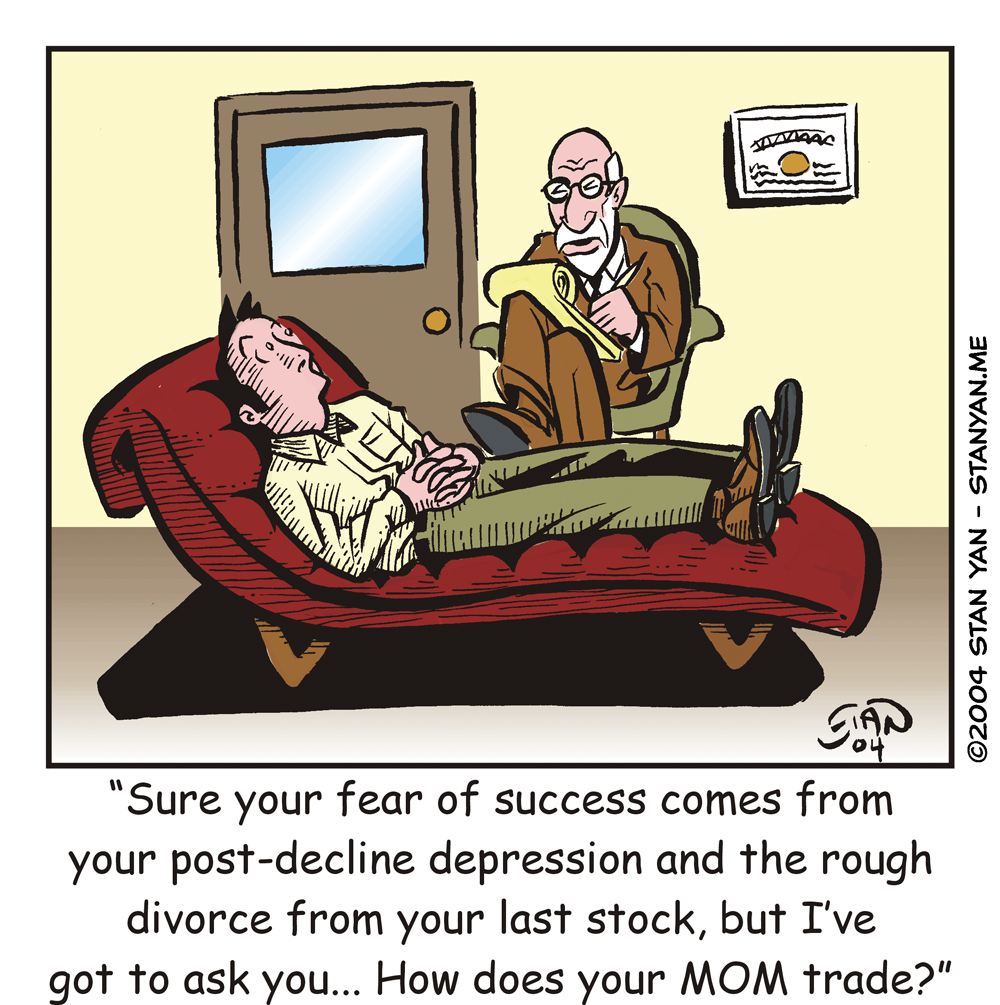Jack fantasizes about becoming a profitable trader. He dreams of big wins and of amassing a great deal of wealth. In the back of his mind, he imagines that if he were wealthy, he could have a life full of luxury and status. Sound familiar? Many newbie traders are drawn to trading to fulfill fantasies of wealth. It’s natural to desire wealth. The quest for wealth and greatness has consumed mankind for generations. It is a strong motivator, but there is a time and place for fantasies and dreams. And conventional wisdom among experienced traders is that, in the end, the prizes go to the humble that seek out nothing more than the joy of trading: the inherent rewards trading offers is fulfilling in its own right.
That said, trading is often quite tedious at times. Traders must make trade after trade, day after day, month after month. Even the most pleasurable activity loses some of its appeals when it must be done over and over again. In addition, one must make a living. If you don’t make enough profits to balance out your losses, you won’t survive. There’s a real fear lurking in the back of most traders’ minds; it is quite probable that you’ll lose your edge and blow out or the stress will get to you and you’ll burn out. In the end, you won’t be able to trade. These possibilities are difficult to accept, and the most common way of dealing with them is often to just pretend it isn’t going to happen. Although it’s easy to avoid unpleasant possibilities in the short run, it is necessary to face them eventually. So you might as well do it sooner than later.
A common irrational belief is that it is easier to avoid acknowledging the unpleasant than dealing with it head-on. But we are most anxious and fearful when we anticipate an impending disaster than when we face an unpleasant fact decisively and with courage. It is better to make active plans than waiting for a disaster to happen. And that is what you’re doing if you avoid considering the possibility that unless preventative steps are taken you can easily blow out or burn out. In both cases, facing the problem decisively will save you time and effort.
As a novice trader, it is quite possible that until you develop reliable trading strategies and gain experience with the markets to know when they will work and when they will not, you will wipe out your account balance. Pretending it can’t happen will make things worse. It is essential to take two steps: Limit your risk on any single trade and have an alternative plan should you blow out your account. Limiting your risk will increase your odds of surviving the learning curve. And if you cannot survive the learning curve, you should have a realistic recovery plan. Perhaps, you have a part-time job lined up to make extra capital, or you may want to stop trading immediately and get more training before you continue.
The main point is that it is essential to have active plans to prevent a disaster than passively wait for it. For example, many traders trade day after day without getting the proper amount of rest and relaxation. Some people believe that it is necessary to trade day after day to stay ahead of the competition. The problem is that everyone has limited energy. It is necessary to take frequent rests, and even take a long break when needed. Pretending that you can trade as if you are a superhero isn’t going to prevent burn out. To prevent, burn out, you must take breaks from trading, even if the break lasts months or years. Pretending that you can beat the natural limits of the human mind or body isn’t going to change matters. Again, it is worse to pretend you can do the impossible than face the possibility of a disaster and take decisive action to prevent it.
There is a natural desire to avoid looking at potential problems. Trading is demanding and stressful. Unless you take preventative steps, it is quite possible that you will make matters worse. Rather than avoid thinking about it by taking no action, it is better to take active, decisive steps. Face problems head-on before they get the better of you. In the long run, you’ll find that you will trade more profitably.


